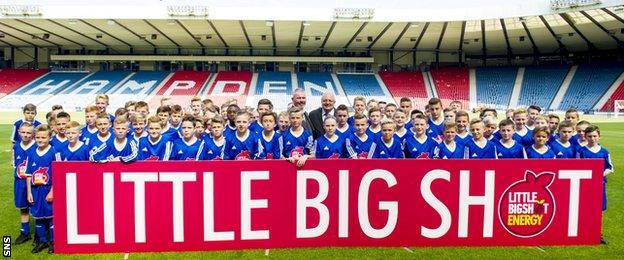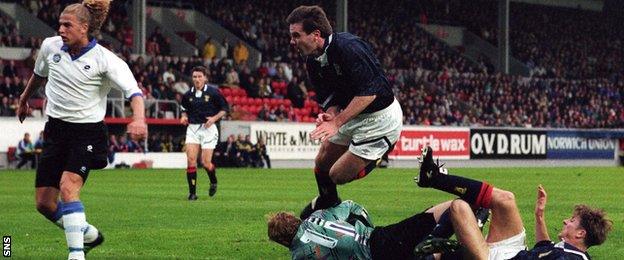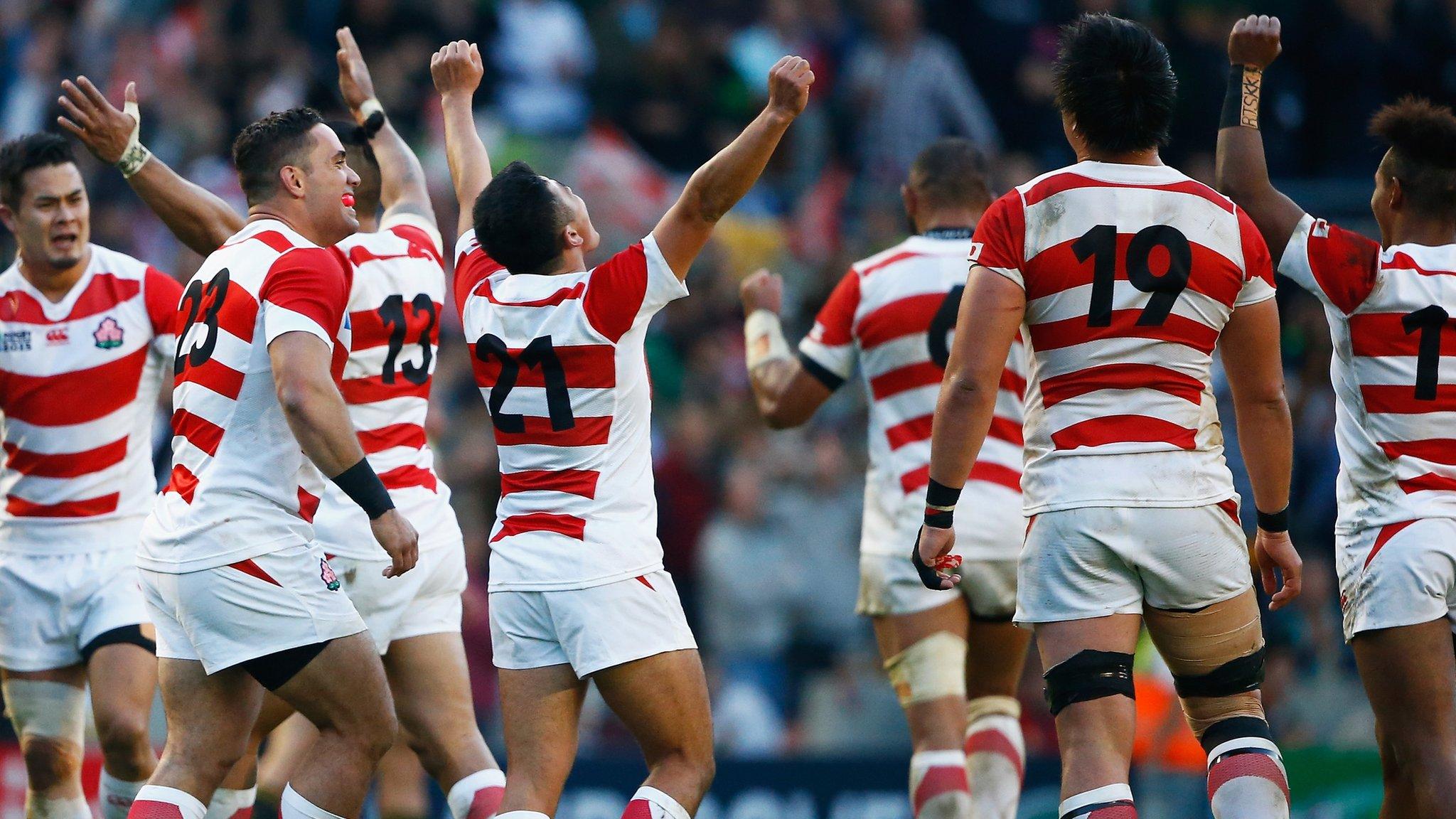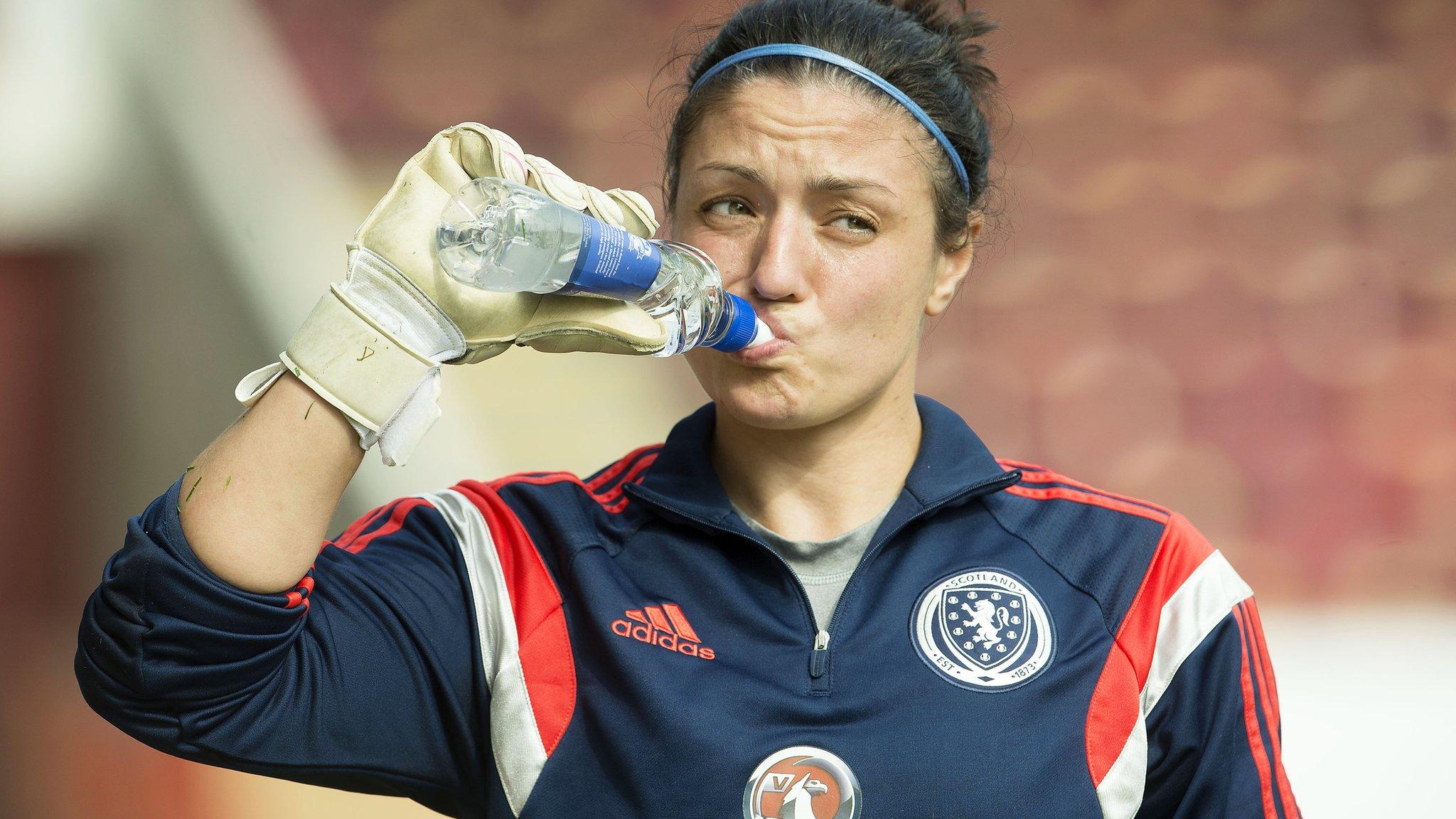Brian McClair 'very encouraged' by SFA performance schools
- Published
- comments
Brian McClair says he's "very encouraged" by the work being done in the Scottish Football Association's performance schools as he considers a future strategy for the game.
The SFA's performance director has been conducting a review since taking over from Mark Wotte.
Across the seven schools involved throughout Scotland, 374 children receive up to 10 hours a week specialised coaching as part of their everyday studies.
"There's been a lot of time invested in this project by a lot of people and we're looking at how we continue to improve the programme as we travel through the years," McClair told BBC Scotland.
The project is now in its fourth year, with this year's intake of pupils the final one of the initial scheme.
McClair will decide in the coming months whether it will continue in its current format once an analysis of how it is working has been concluded.
Alternatives could include certificating the programme to award pupils a Higher qualification for completing the course or focusing on a smaller group of children at one single, residential campus rather than the seven schools involved just now.

McClair helped launched the latest intake of SFA Performance School pupils in August
At the very least, the current system will continue until this year's S1 pupils have completed fourth year.
Gauging its success thus far is tricky, with the oldest participants still only in S4, but McClair believes there are some good indicators.
"I think you can be encouraged by the number of young people who have been in the performance schools who have been in the younger representative squads over the last three-and-a-bit years and the evidence suggests that will continue," he added.
"By summertime I think it'll be a half-decent measure of the number of young boys who are being offered the opportunity to go into full-time football, although I believe that's changing a little bit in the sense that it's 16 or 17 that some clubs are looking at taking them in full-time.
"The idea's great. Many clubs in England have taken it on board - getting kids in during the day, giving them more opportunities to practise the disciplines involved in football.
"The evidence is all there that they're improving quicker than they were previously under a hybrid programme where all the coaching was taking place in the evening or at weekends."
The other important gauge of success is academic achievement.
Exam results will not be available from the SFA project until this summer, but Graeme High School in Falkirk ran a pilot scheme - of which Craig Sibbald and Celtic youngster Paul McMullan are graduates - that allows for some analysis.

Brian McClair won 30 caps for Scotland
"Last year we had a group of 14 or 15 and the vast majority were highly successful, able pupils, one with five Highers, two with four Highers, three with three Highers and a suite of other academic achievements," headteacher Lesley Carroll told BBC Scotland.
"Most of them have gone on to professional clubs but they have got a fallback position. They have been some of our top-performing academic pupils too because not only do they have to be elite athlete footballers, they have to have what the SFA would call a growth mindset.
"They're not afraid of targets, hard work, commitment, drive and confidence."
Indeed, Carroll believes there is an argument the programme helps the performance school students achieve better results in their other subjects, though she admits no "real forensic research has been done into that".
But it will be the level of footballing development that determines exactly how McClair and the SFA proceed in terms of their future performance strategy.
- Published22 September 2015
.jpg)
- Published21 September 2015

- Published21 September 2015

- Published21 September 2015
